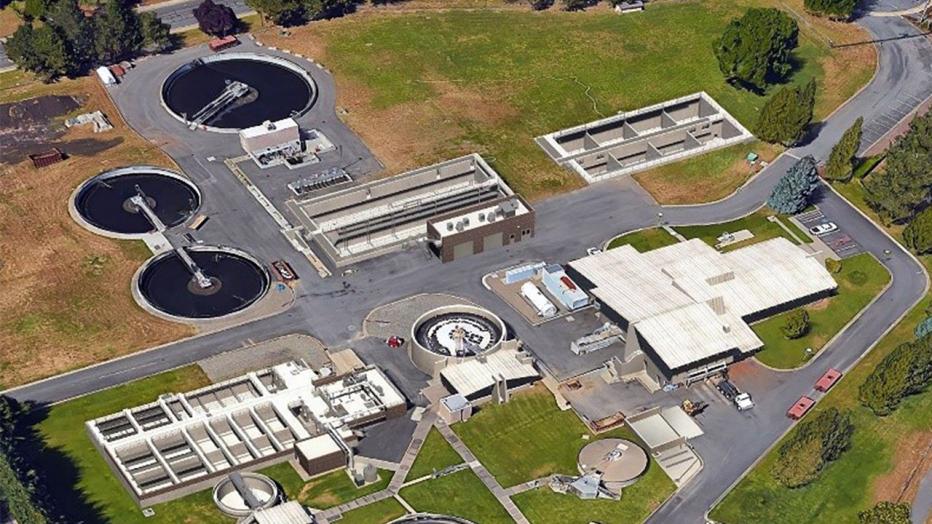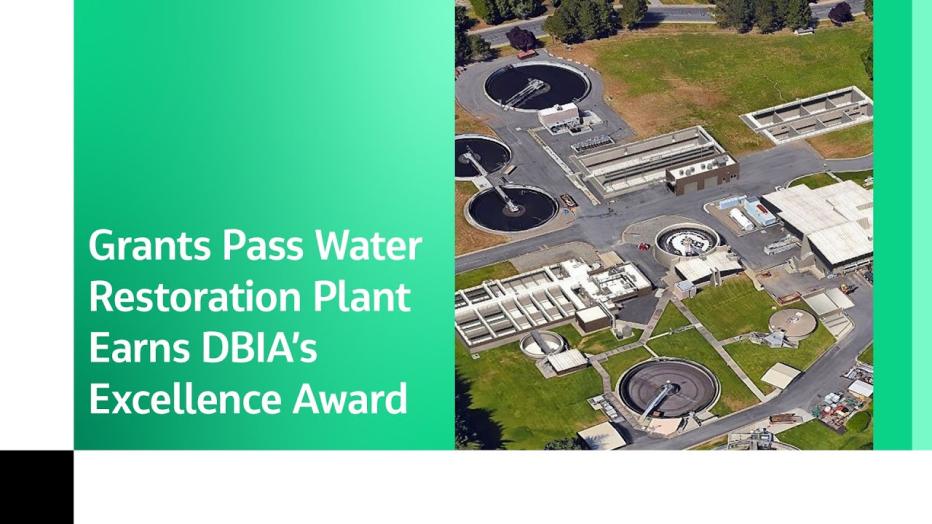
While 2020 already makes for a remarkable chapter in history, for the City of Grants Pass, Oregon, the National Merit Award for their Water Restoration Plant (WRP) is certainly another 2020 moment to remember.
Having nabbed the award in the Water/Wastewater category of the Design-Build Institute of America’s (DBIA) annual Design-Build Project/Team Awards competition – which award honors the nation’s best design-build projects and leaders – the Grants Pass WRP is now qualified to compete for a National Award of Excellence and Project of the Year Award at DBIA’s Design-Build Conference and Expo Awards Ceremony, Oct. 29.

UPDATE : It was announced at the Oct. 29 DBIA Award Ceremony that this project also won the Excellence Award in the Water/Wastewater category, which means it was the best of the best, in a year with a record number of submissions. Congratulations to the entire project team!
Selected as the City’s Progressive Design-Builder, Jacobs worked collaboratively to implement major improvements to the WRP, which had not seen substantial improvements in decades. Equipment failures and system outages were all too common, increasing the potential for direct discharges to the Rogue River during peak flow conditions. The upgrade project included adding a new aeration basin, blowers and blower building, a primary clarifier, vacuum truck solids receiving station, retrofit of the existing gravity thickener and replacement of plant electrical, in addition to a new SCADA system which enhances operation and provides staff with comprehensive operational data as well as opportunities to optimize system performance.
“The City chose to utilize the progressive design-build delivery model to minimize cost, reduce risk, streamline construction and improve schedule performance,” says City of Grants Pass Public Works Director Jason Canady. “We are happy to have partnered with Jacobs on this project and believe that utilizing the capabilities of all team members was critical to maintaining operation of the facility throughout construction and maximizing project value within the City’s limited budget.”
Progressive Design-Build Model Delivers Benefits to City of Grants Pass
According to the City, their team worked together with Jacobs to leverage the progressive design-build model, which delivered numerous benefits, including:
- Anticipated unforeseen conditions on invasive retrofit projects; costs associated with issues found were paid for through allowances within Guaranteed Maximum Price.
- City staffers provided significant input into design and sequence of construction, which allowed them to maintain plant performance during construction without permit violations.
- Benefited from open book pricing.
- Project cost not impacted by design coordination issues or supplier delays, as these were Jacobs’ responsibility as Progressive Design-Builder.
In addition to these benefits, the approximately $25 million project was completed on-schedule (23 months) and 1% under the final budget. The project significantly upgraded the City’s 6-million-gallon-per-day (mgd) WRP, improving reliability of treatment. What’s more, it was built safely, with 118,000 on-site workhours, without a lost time incident.
“As a single-entity Design-Build firm, Jacobs was 100 percent responsible and accountable for delivery, from preliminary design, permitting and construction, through acceptance testing,” explains Jacobs Vice President, West Design-Build Lead and Project Manager Michelle Green. “We are honored that this project has received national attention from DBIA and hope that this model can serve as an example for others to utilize in the future.”
Now operational for nearly one year, the upgraded facility is operating successfully. So pleased with the collaboration and outcome of this project, the City plans to utilize the same progressive design-build model for the design and construction of its new $82 million water treatment plant.












































